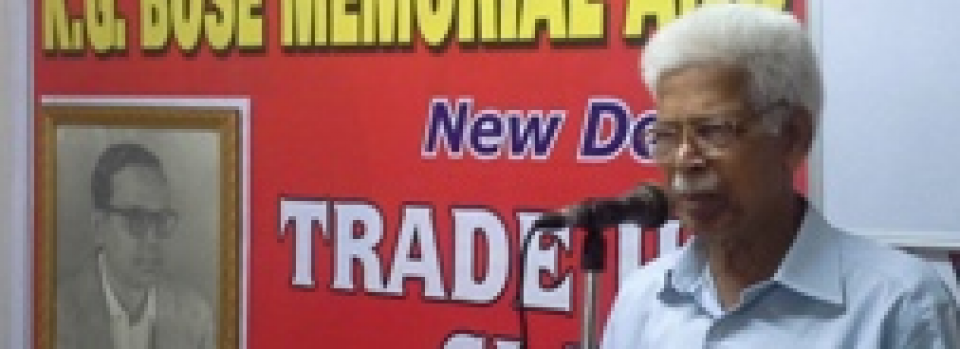JOINT CONSULTATIVE MACHINERY (JCM)
The Historic Strike of July 1960, connected victimisation and other mattes have been mentioned earlier. Although strike was suppressed, it was not possible for government to completely ignore issues raised by unions.
One of the major demands raised in 1960 strike was grant of dearness allowance on full neutralisation in cost of living index. In 1964, Confederation gave call for organising agitational programmes on the issue, including an All India Demands Day on 12-08-1964. Prime Minister Shri Lal Bahadur Shastri, after meeting the union leaders appointed Shri S.K.Das, Retired Judge of Supreme Court, as One Man Committee to examine the rates of DA. This was not satisfactory to unions, since question of Dearness Allowance formula was not included in terms of reference. Das Committee did not recommend full neutralisation for cost of living. Unions protested. Government appointed another 3 men D.A.Committee with Retd Chief Justice of Supreme Court, Shri P.B.Gajendra Gadkar as Chairman. Its report was worse than that of Das Committee. Strong protest arose and agitational programmes were organised by unions.
However, some orders were issued including introduction of Family Pension for the first time, removal of discrimination in the matter of pension and certain other matters between Class III and Class IV employees etc.
Government realised that one reason for continued agitations by workers is absence of a regular forum for negotiations between government and its workers. Hence it decided that a negotiating forum like that of Whitely Council in Britain can be constituted. Discussion took place with unions of CG Employees, including P and T. The proposal for Joint Consultative Machinery (JCM) was placed by government as follows:
There will be a National Council, which will have Cabinet Secretary as Chairman and representatives from official and union side. Similarly Departmental Councils and Circle Councils. But one condition was that after the negotiating council is formed, there will be a ban on strike. This was not acceptable to unions and government was compelled to drop that condition.
There was serious internal discussion in NFPTE about accepting these proposals. It was clear that though ‘ban on strike’ condition was dropped, intention of the government was to entangle unions in eternal discussions without any result. Any negotiation can be successful only if it is supported by fighting potential. The progressive leadership of Coms. K.G.Bose, K.Adinarayana and N.J.Iyer pointed out the pitfalls in the proposals. However, proposals were accepted by the dominant leadership.
Later events proved that what the progressive section stated was fully correct (to be continued).
